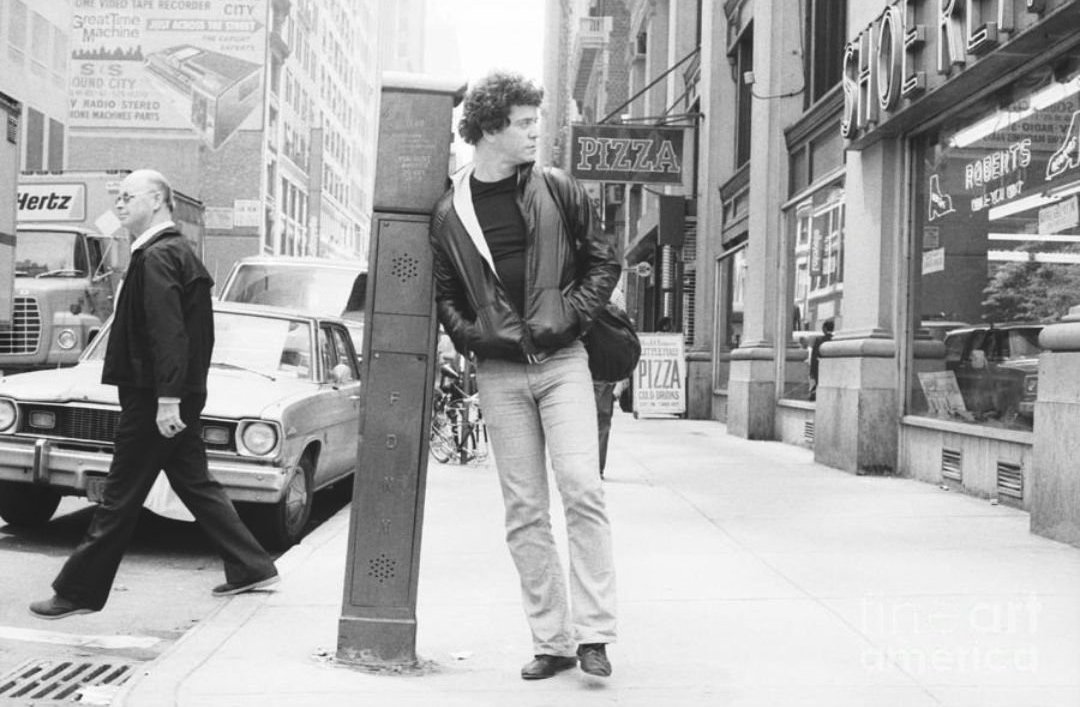Let's Slip Away - Lou Reed’s 1978 Masterpiece :: “Street Hassle”
Through the fumigated streets of alabaster alchemy and death chant blues, lurks this magnificent figure coated in black atmosphere and citizen chrome. His Adam’s apple pierces through his flesh as he blends into the spiritual shadows of night, while carrying an angelic mantra eager to escape from his lips before collapsing into the historical concrete, where stride meets ultimate pride. The cosmic undertones of culture, class and cognitive creativity clash under this platinum reaction like that of some sinister science experiment that’s both gripping and aromatically devastating. Some would argue that “progressive culture” died with the hippies, but we all have to get real jobs at some point, right?
The vampiric volume and gargoyle genius of the late Lou Reed has been captured and explored almost hazardously over the last half century, but without drying up the cerebral streams of our minds with the well established origins of Reed’s life before, during and certainly after The Velvet Underground, we take a closer look at perhaps his most darkened and existentially economic album to date, 1978’s “Street Hassle”. A romantic opus that spirals into the blistered depths of community, sex, expression and principal pleasures, Reed taps into the electrifying zeitgeist during a time in history where punk reflected personality and politics and rock unnervingly explored the bountiful prospects of fame and the overeating of cultural gain. Without indulging so much in Reed’s use of particular substances during this time, as this has always been a leading interest with the artist unfortunately, but instead, let's paint a somewhat foreboding scene in a time and place in America-where the economy was slipping through the castle cracks like fermented blood, murder was at an-all time high and the pre-existence of 1980s sights and sounds was yet to coexist alongside presidential purgatory of the coming decade.
With flawless technique and Reed’s historical interest in experimentation and excitement, “Street Hassle” would soon be born and with it, an accurate description of our lunatic society and the non-fiction characters that have inhabited our creeping subconscious narrative from the last 200 years. Eventually relocating to Record Plant studios to further flesh out the personality and pregnancy of the already complicated production of the album, it would be here that Reed and his co-producer explored the endless elements of ‘binaural recording’, a method developed by French inventor and engineer Clément Ader using two microphones in order to replicate the brilliant essence of what it truly sounds and feels like to be in a room with musicians and their instruments. Reed was further motivated by label president Clive Davis to focus on the album’s sublime title track in order to gain some sort of fundamental focus, or allied control of the project. Of course, as most legends go, there was a meeting of minds between America’s beloved Bruce Springsteen and the underworld poet, which led to the two briefly collaborating on and off the record, so to speak.
"I wanted to write a song that had a great monologue set to rock. Something that could have been written by William Burroughs, Hubert Selby, John Rechy, Tennessee Williams, Nelson Algren, maybe a little Raymond Chandler. You mix it all up and you have 'Street Hassle'."
Where the blue collar meets the lengthy robe of Dracula and the bare, ashy chest that leads to his famous fang, you get one of the most exceptional confessions from one of the most gifted artists of our time. There’s an honest reflection of all of us in Reed’s eyes that are carefully protected by his infamous aviators that so effortlessly grace the cover of the 1978 classic. “Street Hassle” isn’t just another Lou Reed album that came after the Velvet Underground days, “Transformer”, “Berlin”, or “Rock N Roll Animal”. Its sharp, diabolic attitude roars from the lungs of a damaged spirit still in his prime. Where romanticism and sorrow significantly reflect the end of an era in a way, as if you can see it coming nearly 50 years after its release. It’s simply a masterpiece, and we should be forever grateful as some of us create music after the experience, while Reed creates the experience. There’s a big difference.
We love you Lou.





